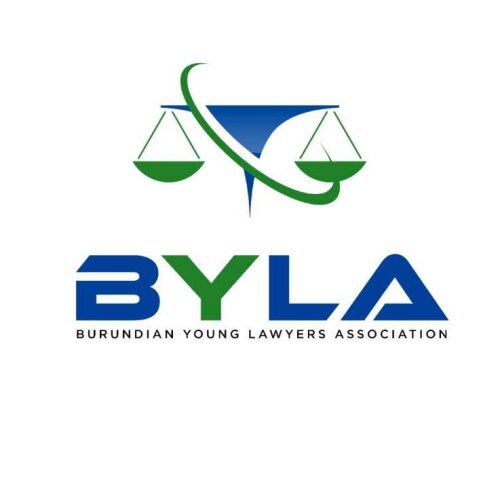Best Restructuring & Insolvency Lawyers in Bujumbura
Share your needs with us, get contacted by law firms.
Free. Takes 2 min.
List of the best lawyers in Bujumbura, Burundi
About Restructuring & Insolvency Law in Bujumbura, Burundi
Restructuring and Insolvency law in Bujumbura, Burundi deals with the processes and rules applicable when individuals or businesses experience financial distress. This field addresses how debts can be reorganized, how assets are managed or liquidated, and how creditors’ rights are balanced with the interests of the insolvent party. Whether it involves companies struggling to pay their debts or individuals facing severe financial problems, these laws set the framework for resolution, aiming to provide fair outcomes for both debtors and creditors. In Bujumbura, as the economic and business capital of Burundi, insolvency matters are particularly relevant for small businesses, corporations, and financial institutions looking to manage risks and maintain stability.
Why You May Need a Lawyer
Legal advice is often essential in restructuring and insolvency matters due to the complexity of the laws and the significant impact of financial distress decisions. You may need a lawyer in situations such as:
- Your business can no longer pay its debts as they fall due
- You are facing aggressive debt collection actions, such as asset seizures or court claims
- You want to negotiate with creditors to restructure outstanding debts
- You are a creditor and want to understand your rights and maximize recovery from insolvent debtors
- You need guidance on insolvency proceedings, such as voluntary liquidation or company administration
- You believe a business partner or co-owner is mismanaging a financially distressed company
- You are considering investment in or acquisition of a distressed company
- You want to understand the potential consequences of bankruptcy or insolvency for your personal assets or reputation
A skilled lawyer in Bujumbura will help you navigate court processes, draft legally sound agreements, mitigate potential liabilities, and ensure your interests are protected throughout restructuring or insolvency proceedings.
Local Laws Overview
Restructuring and Insolvency in Burundi is governed primarily by the OHADA Uniform Act on Insolvency Proceedings, which applies across OHADA member states, including Burundi. In Bujumbura, local courts implement these regional regulations alongside national civil procedures. Key aspects include:
- Insolvency proceedings can be initiated by debtors or creditors when a company or individual is unable to meet their financial obligations
- The Uniform Act distinguishes between preventative proceedings (seeking to restructure or rescue a business) and collective proceedings (insolvency or liquidation)
- During insolvency procedures, an administrator or court-appointed receiver may be designated to manage the debtor’s affairs
- There are mechanisms for negotiation with creditors, including the possibility of debt repayment plans and restructuring agreements
- The law provides a stay of individual enforcement actions by creditors during certain proceedings
- Creditors must submit claims within set deadlines to participate in distribution of any assets
- There are specific rules governing the priority of payment to creditors, with tax and employee claims often taking precedence
- Fraudulent transfers or preferences made prior to proceedings may be set aside by the court
Additionally, there may be cross border issues addressed if the insolvent party has assets or creditors abroad. Compliance with both OHADA and Burundi’s national legal requirements is crucial.
Frequently Asked Questions
What is the difference between restructuring and insolvency?
Restructuring refers to efforts made to reorganize an individual’s or a company’s debts and operations in order to avoid insolvency, restore financial health, and keep the business running. Insolvency is the legal state where a person or entity is unable to pay debts as they come due, which may trigger liquidation or bankruptcy procedures.
Can a company continue to operate during insolvency proceedings?
In some cases, a company may be allowed to continue operations under the supervision of an administrator while a recovery plan is negotiated. This is intended to increase the chances of survival and maximize recovery for creditors. However, if recovery is not possible, liquidation may follow.
What happens to employees during insolvency?
Employees’ claims, such as unpaid wages and terminal benefits, are typically given preferential treatment in insolvency proceedings. However, some job losses may be inevitable if restructuring involves downsizing or asset sales.
How are creditors paid during insolvency?
Creditors are paid according to a specific order set by law. Secured creditors, such as banks with collateral, are paid first. Next are preferential creditors, including employees and tax authorities, followed by unsecured creditors. Payments are made from the debtor’s available assets.
What is the role of the court in insolvency proceedings?
The court oversees the entire process, including the appointment of an administrator or receiver, approval of repayment plans or agreements, validation of creditor claims, and distribution of assets. The court ensures legal procedures are followed and all parties’ rights are respected.
Can individual persons file for insolvency or bankruptcy?
Yes, both individuals and companies can be subject to insolvency or bankruptcy proceedings in Bujumbura under OHADA law, though the procedures and consequences may vary for individuals compared to corporations.
What are the risks of informal debt restructuring?
Restructuring debts informally without court or legal supervision may expose you to further creditor actions, lack enforceability, and miss legal protections available during formal procedures. Legal advice ensures your interests are safeguarded.
Can debts be reduced or forgiven during restructuring?
It is possible to negotiate new repayment terms, reductions in the total amount owed, or even for certain debts to be forgiven, especially if creditors believe this increases their chances of partial recovery versus full liquidation.
What happens if a debtor tries to hide assets?
Any attempt to conceal, transfer, or dissipate assets before or during insolvency proceedings is prohibited by law. Such actions may be reversed by court order, and those involved can face civil and even criminal penalties.
How do I start insolvency or restructuring proceedings in Bujumbura?
You need to submit a formal application to a competent court, along with supporting documents proving financial distress. Consultation with a qualified lawyer ensures all procedural steps are met and your rights are protected.
Additional Resources
For those needing guidance or support, the following resources may be helpful:
- The Ministry of Justice of Burundi - provides regulatory information and access to courts handling insolvency matters
- Bujumbura Chamber of Commerce (Chambre Fédérale de Commerce et d'Industrie du Burundi) - offers advice and support to businesses
- Local Bar Association - can provide contacts for accredited lawyers specializing in insolvency and restructuring
- OHADA National Commission - supplies information and resources about the implementation of the OHADA Uniform Act in Burundi
- Financial institutions and creditors’ associations - may offer guidance on negotiation and restructuring best practices
Next Steps
If you are facing financial distress, debt litigation, or the need to restructure in Bujumbura, the first step is to seek professional legal advice. Gather all relevant financial documents, such as loan agreements and statements of assets and liabilities. Contact a lawyer with expertise in restructuring and insolvency law in Burundi. Your chosen legal advisor will assess your situation, explain your options, and guide you through the appropriate legal process. If negotiations with creditors become necessary or court involvement is required, your lawyer will represent your interests and work toward the most favorable outcome possible.
Do not delay seeking advice, as timely intervention increases your chances of a successful resolution and may protect you from harsher consequences. Insolvency procedures are complex, but with the right guidance, you can navigate this challenging time and work toward financial stability.
Lawzana helps you find the best lawyers and law firms in Bujumbura through a curated and pre-screened list of qualified legal professionals. Our platform offers rankings and detailed profiles of attorneys and law firms, allowing you to compare based on practice areas, including Restructuring & Insolvency, experience, and client feedback.
Each profile includes a description of the firm's areas of practice, client reviews, team members and partners, year of establishment, spoken languages, office locations, contact information, social media presence, and any published articles or resources. Most firms on our platform speak English and are experienced in both local and international legal matters.
Get a quote from top-rated law firms in Bujumbura, Burundi — quickly, securely, and without unnecessary hassle.
Disclaimer:
The information provided on this page is for general informational purposes only and does not constitute legal advice. While we strive to ensure the accuracy and relevance of the content, legal information may change over time, and interpretations of the law can vary. You should always consult with a qualified legal professional for advice specific to your situation.
We disclaim all liability for actions taken or not taken based on the content of this page. If you believe any information is incorrect or outdated, please contact us, and we will review and update it where appropriate.













